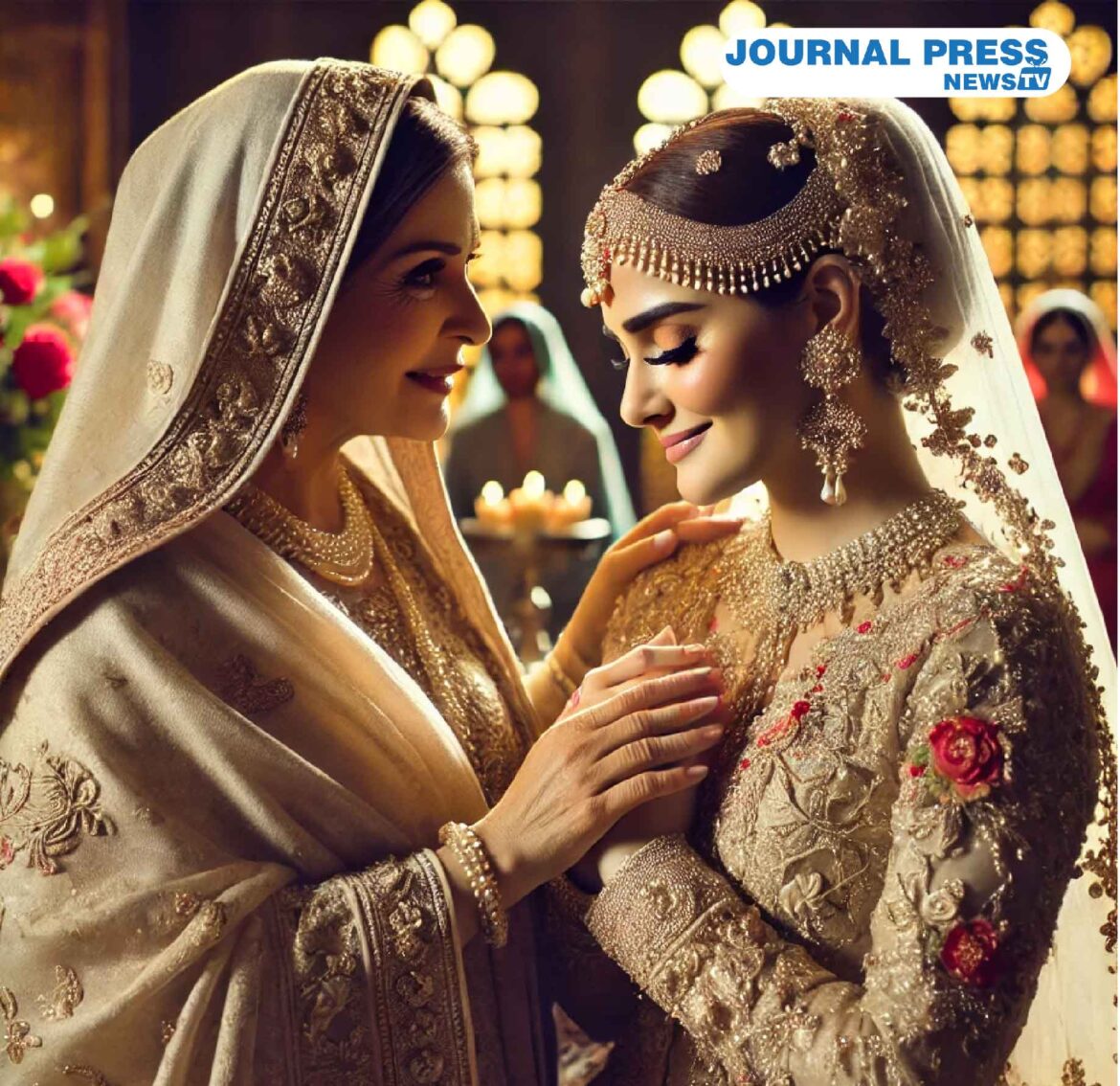Ismaili Muslim Wedding: A Special Bond Between the Bride and Mom
In Ismaili Muslim weddings, like in many cultures, the relationship between a bride and her mother holds a deep emotional significance. Weddings are not just about the union of two individuals, but they also symbolize the love and bonds within families. One of the most beautiful aspects of an Ismaili Muslim wedding is the special connection between the Ismaili Muslim wedding bride and mom. Their relationship, reflected in every stage of the wedding process, speaks of tradition, love, guidance, and support.
In this article, we will explore the unique role of the bride’s mother during an Ismaili wedding, key traditions that highlight their relationship, and how this bond is celebrated in the lead-up to and during the wedding ceremony.
The Special Role of the Bride’s Mom in an Ismaili Muslim Wedding
In Ismaili Muslim culture, the bride’s mother plays an essential role in preparing her daughter for marriage. This goes beyond the physical arrangements of the wedding day and extends into emotional and spiritual preparation. The mother is often seen as the guiding light for the bride, providing advice, strength, and support throughout the wedding process.
1. Pre-Wedding Guidance and Support
The Ismaili Muslim wedding bride and mom share a close bond leading up to the big day. In the months before the wedding, mothers often guide their daughters on traditions, values, and expectations of marriage. They share wisdom on how to build a strong, lasting relationship, often drawing from their own experiences.
- Sharing Cultural Traditions: Mothers teach their daughters about the cultural rituals of the wedding, from the significance of religious ceremonies to the traditions that have been passed down through generations.
- Emotional Support: Weddings can be overwhelming, and the bride’s mother is often the emotional anchor, offering comfort and reassurance as her daughter prepares to embark on a new chapter in life.
2. Involvement in Wedding Preparations
The mother of the bride is deeply involved in the planning and execution of the wedding. From helping choose the bride’s wedding attire to organizing pre-wedding events, the bride’s mom plays a significant role in making the day memorable.
- Choosing the Wedding Attire: In Ismaili weddings, the bridal outfit is often chosen with the mother’s help. The attire reflects both tradition and modern style, and the mother ensures that the outfit represents the family’s values and cultural heritage.
- Planning the Ceremonies: The bride’s mother also helps plan the various pre-wedding and wedding-day ceremonies. This includes traditional events such as the Mehndi ceremony, which is filled with music, dance, and blessings for the bride.
Key Traditions That Celebrate the Bond Between the Ismaili Muslim Wedding Bride and Mom
In Ismaili Muslim weddings, several traditions and rituals celebrate the deep bond between the bride and her mother. These moments are emotional and reflect the love and care that has shaped the bride’s journey to marriage.
1. Mehndi Ceremony: A Celebration of Togetherness
One of the most vibrant pre-wedding traditions is the Mehndi ceremony, where the bride’s hands and feet are adorned with intricate henna designs. The bride’s mother often plays a key role in this ceremony, celebrating her daughter’s upcoming marriage while being by her side.
- Henna Application: The mother of the bride might have her own hands decorated with henna, symbolizing her joy and pride in her daughter’s marriage.
- Singing and Dancing: Traditional songs that express the bittersweet emotions of a mother preparing to send her daughter to a new home are sung during the Mehndi, highlighting the emotional connection between the bride and her mom.
2. Dressing the Bride: A Sacred Moment
On the wedding day, one of the most intimate moments is when the mother helps her daughter prepare for the ceremony. This is not just about dressing the bride; it’s a spiritual and emotional moment shared between mother and daughter.
- Placing the Veil: In some Ismaili weddings, the mother has the honor of placing the veil (dupatta or chador) over her daughter’s head, symbolizing her blessings and prayers for a happy, prosperous marriage.
- Final Blessings: Before the wedding ceremony begins, the mother may offer final blessings to the bride, praying for her happiness, health, and the strength to build a successful marriage.
3. Rukhsati: A Moment of Transition
The rukhsati is a highly emotional moment that marks the departure of the bride from her family’s home to her husband’s home. During this ceremony, the bride says goodbye to her parents, particularly her mother, who has been by her side every step of the way.
- Tears of Joy and Sadness: It’s common for both the bride and her mother to shed tears during the rukhsati. While it’s a happy occasion, the parting is bittersweet, symbolizing the end of one chapter and the beginning of another.
- Blessing the Bride: Before leaving, the mother often gives her daughter a final hug and blessing, reminding her of the family values and strength that will carry her through her married life.
The Emotional Bond Between an Ismaili Muslim Wedding Bride and Mom
The Ismaili Muslim wedding bride and mom relationship is a testament to the enduring bond between mother and daughter. Weddings are emotional milestones, and the role of the mother during these events goes far beyond logistical planning; it’s about passing on wisdom, values, and traditions.
1. A Lifetime of Lessons
In many Ismaili families, the mother plays a central role in the bride’s upbringing. The wedding is a culmination of the lessons, traditions, and values that the mother has imparted to her daughter throughout her life. During the wedding ceremonies, these teachings are reflected in the way the bride carries herself, how she interacts with her new family, and the values she brings into her marriage.
2. A New Chapter for the Mother
For the bride’s mother, a wedding marks the beginning of a new chapter in her own life as well. While she remains a constant source of support for her daughter, the wedding also symbolizes a transition. It is a time of joy, pride, and sometimes sadness, as she watches her daughter start her own family.
Conclusion
The bond between an Ismaili Muslim wedding bride and mom is one of deep love, guidance, and mutual respect. In every step of the wedding process, from pre-wedding preparations to the emotional moments of the wedding day, the bride’s mother plays an indispensable role. The traditions and rituals of an Ismaili wedding beautifully reflect the significance of this relationship, celebrating the emotional connection that only a mother and daughter can share.
For those attending or planning an Ismaili Muslim wedding, it’s important to appreciate and honor the unique bond between the bride and her mother—a bond that continues to grow, even as the bride embarks on a new journey in marriage.




